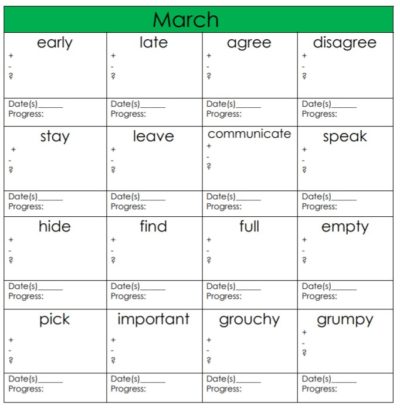School Year of Core Vocabulary Words: AAC Resources for Month 8 (March) by Michaela Sullivan, Alisa Lego, & Beth Lytle
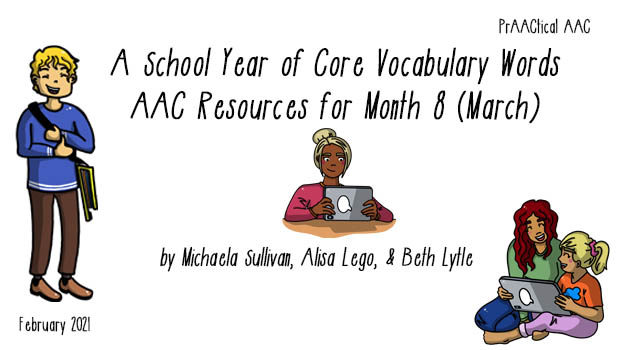
Welcome to a new post in the School Year of Core Vocabulary Words Series! Guest authors Michaela Sullivan, Alisa Lego, and Beth Lytle are back to focus on a selected set of words to highlight for the month. In addition to their wonderful Activity Packets, containing sheets on highlighting these words in a variety of activities, they also share helpful tips for expanding language. Finally, don’t miss the data collection forms specific to Level 1 and Level 2 words.
If you are new to this series, you may want to review the introduction that our series authors created before delving into this month’s target words. You can see the guest authors’ overview here. You can also review the first 7 months of the School Year of Core Vocabulary Words using the links at the bottom of this post.
A SCHOOL YEAR OF CORE- INTRODUCTION- MARCH
To the parents, teachers, Speech-Language Pathologists, Paraprofessionals, friends, and other curious professionals or communicators – welcome back to the monthly School Year of Core Words- March 2021 Edition.
Over the last few months, we have continued to expand our activities to reach the needs of students ranging from young children to young adults. We hope that these activities will continue to assist you in facilitating and integrating the use of core vocabulary regardless of the age of the student.
Many of the March Level 1 and Level 2 weeks are packed with words that are opposites. This can be a fun way to teach the contrast between the two words. As always, tailor this to your students’ needs and level, and feel free to get creative with how you present the materials.
We are thankful for the amazing Core Contributors who have worked tirelessly to create the activity sheets and resources in the postings. We are continuing to work in teams to create resources. We have learned that working together brings diverse and rich ideas that we want to impart on all of you and your incredible students.
Our Featured Core Contributors for the Month of March include:
- Mary Hamilton
- Nico Lu
- Jennifer Yoshimura
- Jamie Deiner
- Diana V Angeles
- Amy Burt
- Moira Ikeda
- Wes Heidenreich
- Sophie Goodwin
- Liz Cambra
- Jessica Oseguera
- Jordan Stuhltrager
- Kelsey Robin
- Shanaz Faisal
- Meaghan Rose Baron
- Beth Kenney
If you’ve ever considered joining us, please do so by emailing us and becoming part of our community of learning and sharing.
Enjoy Month 8 of the School Year of Core Words!
THE WORDS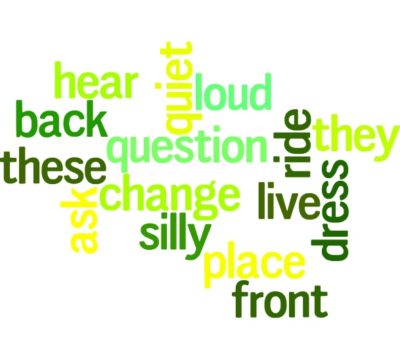
Level 1 words for March: they, live, place, ride, dress, ask, question, these, change, hear, front, back, loud, quiet, silly
The suggested sequence for implementation is listed below:
- Week 1: they, live, place, ride
- Week 2: dress, ask, question, these
- Week 3: change, hear, front, back
- Week 4: loud, quiet, silly
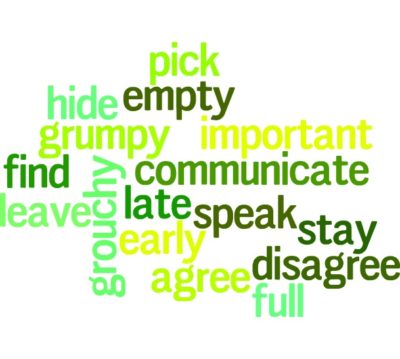 Level 2 words for March: early, late, agree, disagree, stay, leave, communicate, speak, hide, find, full, empty, pick, important, grouchy, grumpy
Level 2 words for March: early, late, agree, disagree, stay, leave, communicate, speak, hide, find, full, empty, pick, important, grouchy, grumpy
The suggested order for these words is listed below:
- Week 1: early, late, agree, disagree
- Week 2: stay, leave, communicate, speak
- Week 3: hide, find, full, empty
- Week 4: pick, important, grouchy, grumpy
THE SYMBOLS
You can download grids with the symbols for this month’s words from the lists below. These handy tools can help us remember what words to focus on and be useful in our intervention and instruction.
Level 1 Words
- Avaz
- CoughDrop
- LAMP Words for Life
- Wordpower 60 Basic
- Unity 45 Sequenced
- Unity 60 Sequenced
- Unity 84 Sequenced
- Blank Grid (add your own symbols)
Level 2 Words
- Avaz
- CoughDrop
- LAMP Words for Life
- Wordpower 60 Basic
- Unity 45 Sequenced
- Unity 60 Sequenced
- Unity 84 Sequenced
- Blank Grid (add your own symbols)
THE ACTIVITIES
These sets of Activity Packets are divided into weeks and can be downloaded for easy access.
Activity Packets for Level 1 Words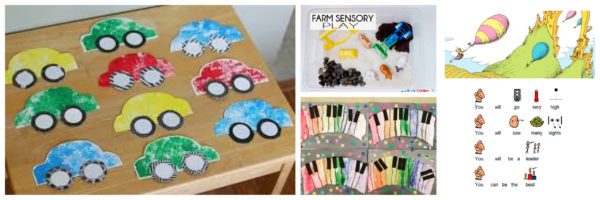
Activity Packets for Level 2 Words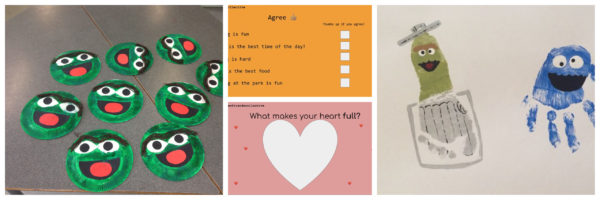
Strategy of the Month: EXTENDING, EXPANDING AND ELABORATING
The AAC strategy of Extending, Expanding, and Elaborating focuses on communication partners responding to what students express by providing immediate, (simultaneous) verbal and AAC system modeling based on the student’s unique language goals. As an example, students at the single-word level may have a goal to produce two-word utterances and therefore the ‘add a word’ approach could be utilized, (providing modeling by adding a word to the utterance/word produced). Such added words could be targeted as pronouns, verbs, or descriptors, (for added specificity). Intermediate to advanced communicators would have different, higher-level language goals and targets that are individualized. When using the Extending, Expanding, and Elaborating approach, it is suggested that such modeling is carried out in a positive, upbeat tone and with correct grammar and syntax.
Please find the following additional resources on Extending, Expanding and Elaborating below. These resources will be helpful for individual learning and/or for team training.
We will be incorporating this strategy in all of our Activity Sheets surrounding the targeted core words. Until it becomes a habit, please try to create intentional opportunities to practice this strategy.
Resources
- Expanding AAC Learners’ Single Word Utterances PrAACtical AAC, Carole Zangari, March 2018
- Building Sentence Length: Say it Spontaneously PrAACtical AAC, Robin Parker, June, 2014
- More Thoughts about Reinforcement in AAC Therapy, PrAACtical AAC, Carole Zangari, February 2014
- Language Facilitation Strategies, PrAACtical AAC, Carole Zangari June 2, 2012
DATA COLLECTION & ACCOUNTABILITY FORMS
Taking data to measure performance and keeping track of our own modeling behavior are two things we can do to strengthen our AAC teaching. Here are some forms that you can use to support those efforts.
This posting is dedicated to all of you SLP’s, parents, educators, and therapists who are making a difference every day!
About the School Year of Core Vocabulary Series Authors
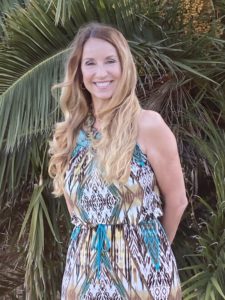 Michaela Sullivan is an SLP who specializes in the fields of AAC and AT. She currently works within the San Francisco Unified School District on the AAC Support Team where she supervises graduate students, works in a transition program, and on special projects. Ms. Sullivan also has a private practice. She has been a presenter in the field of SLP and AAC at state and national conventions. She serves as a board member and volunteer for the Nika Project, providing services, supports, resources, training, and repurposed equipment for individuals with complex communication needs both locally and internationally.
Michaela Sullivan is an SLP who specializes in the fields of AAC and AT. She currently works within the San Francisco Unified School District on the AAC Support Team where she supervises graduate students, works in a transition program, and on special projects. Ms. Sullivan also has a private practice. She has been a presenter in the field of SLP and AAC at state and national conventions. She serves as a board member and volunteer for the Nika Project, providing services, supports, resources, training, and repurposed equipment for individuals with complex communication needs both locally and internationally.
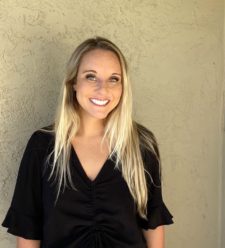 Alisa Lego is a second-year graduate student and candidate for Master of Science in Speech, Language and Hearing Sciences at San Francisco State University. Alisa is specializing in AAC through San Francisco State University’s federally funded Project Building Bridges. Alisa is also a candidate for the Autism Spectrum Graduate Certificate. Through Project Building Bridges, she has joined the Nika project and is providing resources for individuals with complex communication needs both locally and across the globe. You can follow Alisa on Instagram at @newfriendscollective.
Alisa Lego is a second-year graduate student and candidate for Master of Science in Speech, Language and Hearing Sciences at San Francisco State University. Alisa is specializing in AAC through San Francisco State University’s federally funded Project Building Bridges. Alisa is also a candidate for the Autism Spectrum Graduate Certificate. Through Project Building Bridges, she has joined the Nika project and is providing resources for individuals with complex communication needs both locally and across the globe. You can follow Alisa on Instagram at @newfriendscollective.
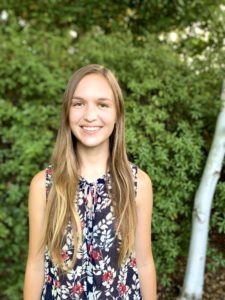 Beth Lytle is a second-year graduate student and candidate for Master of Science in Speech, Language and Hearing Sciences at San Francisco State University. Beth is specializing in AAC through San Francisco State University’s federally funded Project Building Bridges. Through Project Building Bridges, she has joined the Nika project and is providing resources for individuals with complex communication needs both locally and across the globe.
Beth Lytle is a second-year graduate student and candidate for Master of Science in Speech, Language and Hearing Sciences at San Francisco State University. Beth is specializing in AAC through San Francisco State University’s federally funded Project Building Bridges. Through Project Building Bridges, she has joined the Nika project and is providing resources for individuals with complex communication needs both locally and across the globe.
:::::::::::::::::::::::::::::::::::::::::::::::::::::::::::::::::::::::::::::::::::::::::::::::::::::::::::
You can find posts for previous months in the School Year of Core Vocabulary Words below.
Filed under: Featured Posts, PrAACtical Thinking
This post was written by Carole Zangari
